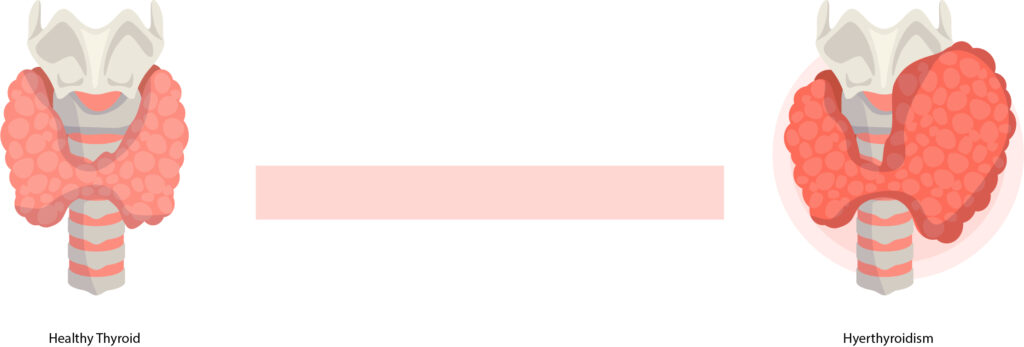Medical Science and Technology
Table of Contents
Toggle What is ICD-10?
What is ICD-10?ICD-10 code, or International Classification of Diseases, 10th Edition code, is a system of alphanumeric codes used by healthcare professionals to classify and document various diseases, conditions, and health-related issues. Each code corresponds to a specific medical diagnosis, symptom, or cause of illness. These codes are used for medical billing, insurance claims, healthcare statistics, and research. ICD-10 codes help ensure consistency and accuracy in describing and recording health-related information in medical records and healthcare systems.
Hypothyroidism is a medical condition where the thyroid gland in the throat doesn’t produce enough thyroid hormones. Thyroid hormones are essential for regulating your body’s metabolism, which affects how your body uses energy. When there’s not enough thyroid hormone, it can lead to various symptoms, including fatigue, weight gain, sensitivity to cold, and other health problems. Hypothyroidism is usually treatable with medication to replace the missing thyroid hormones.
Common Signs of Hypothyroidism:
Feeling Tired: People with hypothyroidism often feel exhausted all the time.
Putting on Weight: Your body may gain weight, and losing it becomes a real challenge.
Always Cold: You might feel unusually cold, even when it’s not cold outside.
Dry Skin and Hair: Your skin might become dry and itchy, and your hair may feel brittle.
Muscle Aches: Your muscles might hurt or feel weak.
Brain Fog: It can be harder to concentrate, you might forget things, and your mood can swing.
Problems in the Bathroom: Constipation is a common issue.
Hoarse Voice: Your voice might change, and your throat can feel weird.
There are different reasons why someone might develop hypothyroidism. It could be due to an autoimmune condition, medications, surgery, or a lack of iodine in your diet.
Now, let’s talk about the ICD-10 code system. ICD stands for “International Classification of Diseases,” and it’s in its 10th edition, which is why it’s called ICD-10. This system is like a dictionary of codes that healthcare professionals use to classify and describe health conditions. It’s used around the world to make sure everyone is speaking the same language when it comes to health.
ICD-10 codes are a bit like secret agent codes, with letters and numbers making up each one. Here’s how they work:
Character 1: This is a letter that puts the condition into a category. For hypothyroidism, it starts with “E” for “Endocrine, nutritional, and metabolic diseases.”
Characters 2 and 3: These are numbers that give more details about the condition. In the case of hypothyroidism, it narrows down to “03.”
Character 4: This number tells you what’s causing the condition. For many cases of hypothyroidism, it’s “0” because the exact cause isn’t specified.
Character 5: This character can provide extra details, like any complications related to the condition. In most cases of hypothyroidism, it’s “9,” indicating unspecified complications.
So, for hypothyroidism, the ICD-10 code usually looks like “E03.9.” This code says it’s an “Endocrine, nutritional, and metabolic disease” specifically identified as “Hypothyroidism” with no specific cause or complications mentioned.
ICD-10 codes are important for several reasons:
ICD-10 codes help doctors and healthcare providers keep accurate records of your health. When they see you for hypothyroidism, they use this code to note your condition properly, which helps them provide the best care.
When you need to use your health insurance, the ICD-10 code comes into play. It tells your insurance company what’s going on with your health and helps them figure out what’s covered. So, if you have hypothyroidism, the ICD-10 code is vital for ensuring you get the right coverage for your treatments and medications.
All these codes are collected and used to make health statistics. Public health agencies, researchers, and policymakers use this data to see what’s happening in the world of health. They can spot trends, allocate resources, and track the impact of conditions like hypothyroidism.
For researchers studying hypothyroidism, the ICD-10 code is a treasure trove of information. They use these codes to find people with specific conditions and investigate the causes, treatments, and connections to other health problems.

As we mentioned, the ICD-10 code for hypothyroidism is E03.9. Now, let’s break it down into simple terms:
E: This is the category letter. It tells us that the code is related to “Endocrine, nutritional, and metabolic diseases.”
03: These two numbers get more specific, pinpointing the condition as “Hypothyroidism.”
.9: The period and the number “9” mean that the code is used when the cause or complications of hypothyroidism aren’t specified. This is common when the doctor’s diagnosis doesn’t point to a particular cause or related problems.
It’s important to know that while E03.9 is the general ICD-10 code for unspecified hypothyroidism, there are more specific codes for different types and causes of hypothyroidism when they are known. Here are some examples:
E03.1 is for congenital hypothyroidism, which means it’s a condition you’re born with.
E03.2 is used when hypothyroidism is linked to a goiter, which is an enlarged thyroid gland.
E03.3 covers cases where certain medications have caused hypothyroidism.
E03.8 is for other specified types of hypothyroidism, not covered by the previous codes.
These more specific codes help healthcare providers give a precise description of the type and cause of hypothyroidism, which can be valuable for medical professionals and researchers.
The correct use of ICD-10 codes depends on the healthcare provider’s diagnosis. It’s up to the healthcare provider to determine the type and cause of hypothyroidism, if possible, and assign the right ICD-10 code. They do this through various tests, like measuring thyroid hormone levels and investigating potential underlying causes.
In a nutshell, the ICD-10 code for hypothyroidism, E03.9, is like a secret key to accurately describing and categorizing this common condition in the world of healthcare. It helps keep records in order, simplifies insurance claims, aids in understanding health trends, and supports scientific research. Furthermore, there are more specific ICD-10 codes available for detailing different types and causes of hypothyroidism, making it a versatile tool for healthcare providers and researchers. Ultimately, the ICD-10 code system improves communication and comprehension among healthcare professionals, insurers, researchers, and public health agencies, leading to better patient care and a deeper understanding of medical conditions.
References:
American Thyroid Association. (2021). Hypothyroidism. Retrieved from https://www.thyroid.org/hypothyroidism/
World Health Organization. (2021). International Classification of Diseases (ICD). Retrieved from https://www.who.int/classifications/icd/en/
Centers for Disease Control and Prevention. (2021). International Classification of Diseases, Tenth Revision, Clinical Modification (ICD-10-CM). Retrieved from https://www.cdc.gov/nchs/icd/icd10cm.htm
Mayo Clinic. (2021). Hypothyroidism (underactive thyroid). Retrieved from https://www.mayoclinic.org/diseases-conditions/hypothyroidism/symptoms-causes/syc-20350284
National Institute of Diabetes and Digestive and Kidney Diseases. (2021). Hypothyroidism. Retrieved from https://www.niddk.nih.gov/health-information/endocrine-diseases/hypothyroidism